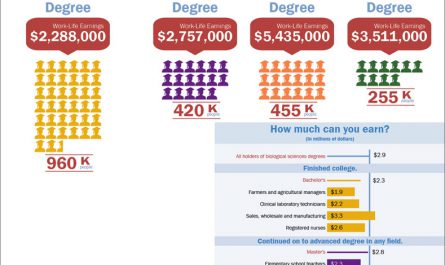 Applying to college can seem like a daunting task! Many procrastinate because they just don’t know where to start. Some questions you want to think through are: Which are the right colleges for me to consider; how do I narrow down my choices; and what do colleges require as a part of their application process. Picking the right colleges to apply to is the first step.
Applying to college can seem like a daunting task! Many procrastinate because they just don’t know where to start. Some questions you want to think through are: Which are the right colleges for me to consider; how do I narrow down my choices; and what do colleges require as a part of their application process. Picking the right colleges to apply to is the first step.
Hopefully you have checked out which schools have received the highest rankings in the career or careers you’re considering. You can find that out through talking to people in those career fields, talking with your school counselor, looking at how the colleges rank in various ranking resources. A general recommendation among school counselors is to narrow your choices down to three categories – dream schools, stretch schools and “sure-bet” schools.
Dream schools are those which are prestigious and could really be a challenge for you to get in according to your GPA, test scores, qualifications, financial resources, etc. Stretch schools are schools which could be a little difficult to get into because of the above qualifying factors. And finally “sure bet” schools are those to which you know you won’t have any problems being accepted. Pick at least one in each of these categories. You need to do your homework in really checking out these schools and make sure you visit the campuses if at all possible. The cost of applying to colleges you don’t end up going to can cost a year’s worth of books so you need to really think through these decisions.
Next find out if the schools take the Common Application. This is a uniform application that many colleges use so it can save time by having one type of application to complete. You can fill it out once and then submit a copy of it to multiple schools. The Common Application “Secondary School Report” needs to be filled out by your counselor. There is also letter of recommendation form that is required and needs to be filled out by those from which you are seeking letters of recommendation. You want to select letter of recommendation writers who know you well and can write about your different character traits, abilities, and aspects of who you are. They need to include specific examples/anecdotes that back up their points. They DO NOT just want to repeat what is on your résumé. You need to make your request to these people at least two weeks in advance of the deadline.
For many schools you need to write at least one essay. Most schools will give you a topic to address in your essay. In the essay include an example, related to the question, that shows your passion for something and aspects that make you stand out among your peers. Don’t be shy or modest. Like your English teacher has probably said, you want to “show, not tell.” Make sure you edit and rewrite it as much as needed to make it a sample of your best writing.
Your application packet will also typically require a transcript, a school profile, test scores, etc. Plan ahead to make sure you are meeting all your high school’s deadlines for requesting all these pieces. Also, look closely to see if the college requires your tests scores to be sent directly from ACT or College Board (SAT and AP) or if they are fine with having them come from the high school.
You may want to create a résumé. It can save time and put forth a more professional appearance to those who are reading your application. Some colleges include a Scholarship application in their application packet. If not, ask the Admissions Office how you can apply for scholarships and financial aid on their campus.
The college application process is equivalent to another class on your schedule with the amount of work it requires. Plan ahead and keep in touch with your school counselor. Apply early so you will have first choice of your housing preferences. This whole process takes lots of time and energy. You want to show the best of who you are. This is one area in which you don’t want to take shortcuts. It can determine the rest of your life, so give it your best shot!



